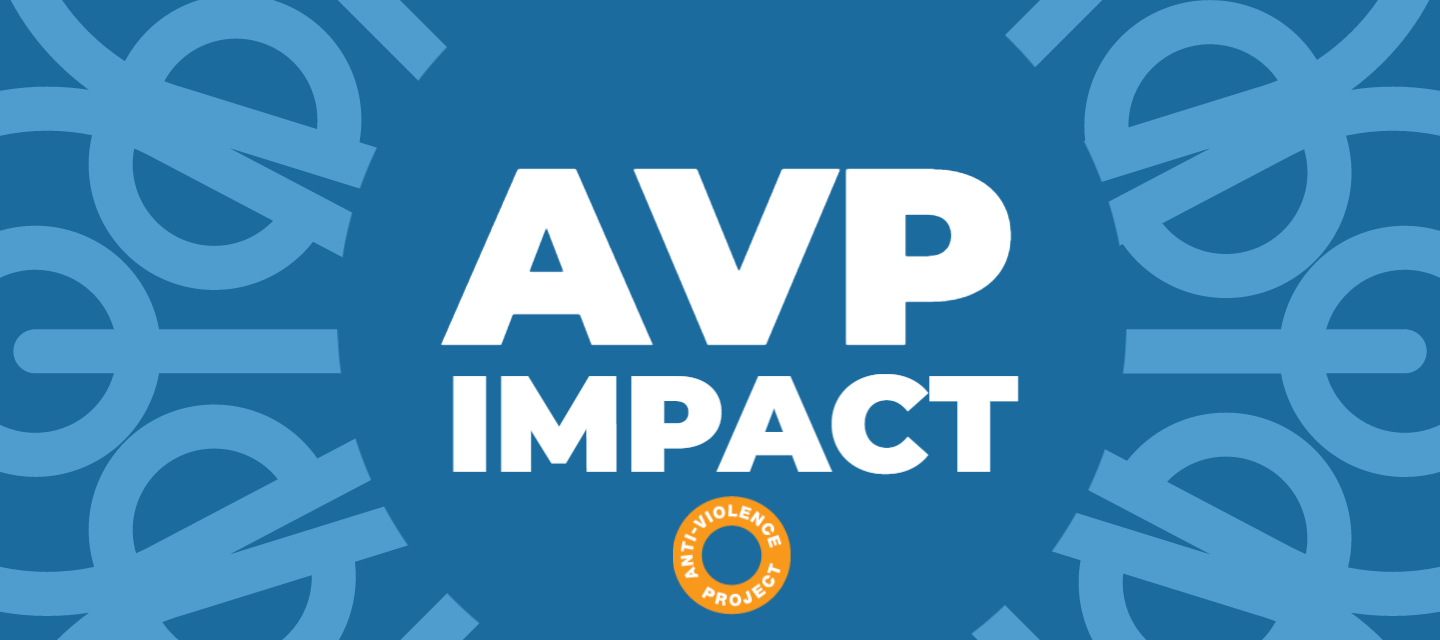
AVP is leading the way in increasing access to inclusive and affirming anti-violence services for LGBTQ survivors of intimate partner, dating, and sexual violence.
LGBTQ people face the same or higher rates of intimate partner and dating violence, as well as sexual. And, too often, our communities face bias, discrimination, and identity-based hate violence when they reach out for safety, support, and services. At this moment in time, when anti-LGBTQ hate violence is on the rise, escalating in prevalence and severity, particularly during high visibility periods like Pride Month, AVP is committed to ensuring that LGBTQ people facing violence at home and in intimate relationships have access to whatever they need to heal from the emotional, physical, spiritual, and financial impacts of violence.
“At AVP, we know how essential it is for the voices of survivors to lead the national conversation around how to end intimate partner and sexual violence, and that LGBTQ survivors are often left out of those vital discussions,” says AVP’s Deputy Executive Director of Programs Catherine (Cat) Shugrue dos Santos. “Furthermore, by not explicitly focusing on the inclusion and affirmation of LGBTQ lived experiences of intimate partner and sexual violence, or not promoting accountability and healing for LGBTQ people who cause harm in their relationships, that itself is erasure.”
As the largest LGBTQ-specific anti-violence organization in the nation, AVP’s involvement in leading this work truly ensures that LGBTQ and HIV-affected survivors’ voices are centered and impactful. Informed by decades of experience in survivor-centered work, Cat and Director of Legal Services Ashley N. Young led a statewide initiative to create a framework for evaluating domestic violence programs’ ability to meet the needs of LGBTQ survivors, resulting in New York State’s first-ever LGBTQI+ Endorsement Program for organizations serving survivors of Gender-Based Violence (GBV).
“Standards create a clear blueprint for programs on how to not only avoid bias and discrimination but to create programming that intentionally includes and affirms survivors across the spectrum of gender identity and sexual orientation, as well as other intersectional identities that increase vulnerability to violence,” shares Ashley.
In collaboration with the New York State Office of Domestic and Gender-Based Violence (OPDV), AVP coordinated a working group that consisted of the Office of Children and Family Services, which licenses and approves domestic violence programs in the state, the NYS Coalition Against Domestic Violence, which represents mainstream domestic violence service providers across the state, and representation from the NYS LGBTQ Intimate Partner Violence Network, a collaborative of more than 35 organizations committed to expanding access to inclusive and affirming programs for LGBTQ survivors, which AVP coordinates. The working group helped to build and define evaluation criteria for LGBTQ-affirming care for survivors of gender-based violence. OPDV released its White Paper on the program, which AVP co-authored, in late March and has now selected its first group of five organizations to participate in a pilot program testing the new standards.
The AVP-led working group created a list of draft Standards for evaluation criteria for organizations to receive the voluntary LGBTQI+ Endorsement:
- Demonstrate an organizational commitment to LGBTQI+ inclusive and affirming programming
- Employ LGBTQI+-affirming strategies with every program participant and colleague
- Maintain policies and procedures that are in compliance with federal and state law to ensure LGBTQI+ inclusion and affirmation
- Create data collection processes and forms for staff and program participants that ensure LGBTQI+ inclusion and affirmation
- Create a welcoming space for LGBTIQ+ program participants and staff
- Establish relationships with local LGBTQI+ organizations and resources
- Increase and ensure diverse LGBTQI+ inclusion and representation among staff and board
- Ensure staff and program participants receive training and technical assistance to support LGBTQ inclusion
Though all licensed programs must legally provide services without bias or discrimination, the reality is that, as with all state systems marked by structural oppression, the systems and structures supporting survivors of gender-based violence have inherent bias and discrimination built within them.
“Not every LGBTQ survivor has access to an LGBTQ-specific anti-violence organization like AVP, and so we must ensure that every LGBTQ survivor can access LGBTQ inclusive and affirming services and support wherever they seek that support,” Ashley explains. “These standards, and the training and technical assistance that is so key to this OPDV pilot, pave the way for us to a future where all survivors can get what they need, as their full selves, and will help us further ensure that gender identity and sexual orientation are not barriers to healing for survivors in New York State.”
Gender-specific or gender-exclusive supportive shelter housing, gendered requirements for care and support, mistaken perceptions of who has done harm or is a survivor, and other barriers can prevent LGBTQ survivors from accessing services, or retraumatize these survivors when they do seek care. As the OPDV white paper noted, “Creating explicitly LGBTQI+ inclusive and affirming gender-based violence programs and services is essential to mitigate the impact of those risk factors.”
The pilot organizations will be evaluated for the next year on their programming, staffing and dedication to LGBTQ inclusivity. The white paper notes that across the board, organizations need more training and technical assistance, connections to LGBTQ-serving organizations, and additional understanding of the unique barriers faced by LGBTQ survivors.
“AVP is grateful to partner with OPDV on once again taking the lead on establishing standards for LGBTQ inclusion and affirmation in programs designed to serve and support survivors of gender-based violence,” shares Cat.
For more information on the LGBTQ Endorsement Project we encourage you to read the project white paper and program standards, and reach out to AVP Communications to connect around this project.
